- Home
- Curriculum
- English
English
Curriculum ChampionMiss Maltz (Writing)  |
Curriculum ChampionMrs Ireland (Reading)  |
Subject LeaderMiss Allen  |
Curriculum Intent
The intent for our curriculum is to ensure our learners are competent communicators in both written and spoken language; to enlighten learners through both the non-fiction and fiction texts they read; to ensure learners have the requisite literacy skills to flourish in the world work; to engender an appreciation of the power of language.
Therefore, English skills and concepts are sequenced in a way that they are progressively challenging and build upon prior skills and knowledge. This will be underpinned by continual development of core writing, reading and oracy skills. Our intention is a curriculum design that gives our pupils the knowledge, skills and understanding to be healthy, safe and responsible young adults, where engagement and enthusiasm are consistently evident. Up to date research will continually inform our curriculum planning. We will achieve this through five strands of learning:
- Link new subject knowledge to prior experiences, thus building cognitive pathways and associations.
- To deliver a curriculum that is relevant and enlightening to the young people in our community.
- To deliver a curriculum that emphasises and reinforces the use of technical language and adventurous vocabulary.
- To create opportunities for fluency, practice and repetition in order to improve retrieval and so deepen understanding, which is essential to strengthen learning.
- To deliver a curriculum which has assessment for learning at its core, using a range of feedback strategies to develop pupils’ metacognition and so move their learning forward.
Our curriculum and classroom practice will reflect Rosenshine’s ten principles of instruction, whilst we also intend to build on the Key Stage 2 Curriculum provide by The Grange Primary Sector.
Phonics
At The Grange Academy, we follow a validated phonics scheme; Essential Letters and Sounds (ELS). The programme provides a simple, consistent approach to phonics, provided through interactive whiteboard lessons. ELS keeps routines simple to reduce cognitive load and maximise the chances of success. All staff in school have completed training on ELS delivered from the Knowledge Schools Trust. More information about ELS can be found at ELS - Essential Letters & Sounds (essentiallettersandsounds.org)
Children in nursery work to develop their listening and attention and speaking and listening skills as well as fostering a love of stories and reading, which then supports them as they move into reception and on to formal phonics teaching.Every child in reception and year 1 takes part in a daily phonics session following the ELS programme. Some may access additional phonic interventions throughout the day if this is needed. The Essential Letters and Sounds programme is separated into Phases – your child’s teacher will be able to tell you which Phase your child is currently working on.
At the end of Year 1 children will take the phonics screening check (PSC) this is a government requirement.This is not a formal test, but a way for teachers to ensure that children are making sufficient progress with their phonics skills to read words and that they are on track to become fluent readers who can enjoy reading for pleasure and for learning.
It is really important that we are saying the sounds correctly when we are supporting children with their reading.If you are unsure of how to pronounce phonic sounds correctly, the video link below offer support with this. Phonics: How to pronounce pure sounds | Oxford Owl - YouTube
It is crucial the children practice reading at home to support the learning that takes place in school.Children will receive 1 book per week that will be matched to the learning that has taken place in phonics and they should read this at least 3 times at home.Your child will have a log in for Oxford Owl for School and Home, which allows them to read books that are matched to their phonic phases. They will also be given a book that you can share with them to develop their vocabulary and understanding of the structure of stories.
Curriculum Map
Knowledge Organisers
Primary


